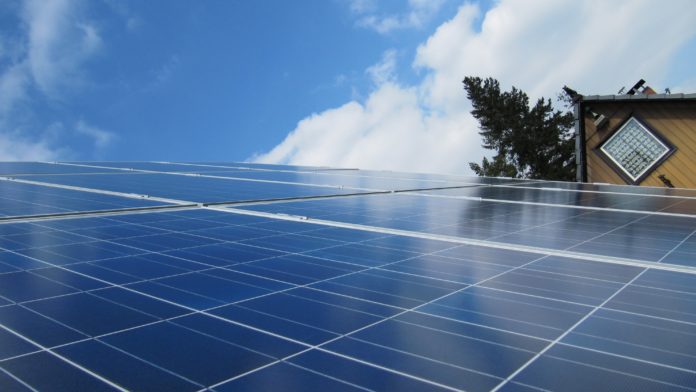Combatting climate change requires individual action, and convincing more people to buy in starts with social influence.
According to a new study by researchers from the University of Waterloo and the University of Guelph, social learning could have a major impact on climate change mitigation. And it all starts with getting people talking so that the actions they take will spread to their neighbours.
Their results were published in PLOS Computational Biology.
Social norms and tech solutions essential in the fight
Geophysical analyses and technical solutions to climate change are widespread, but this model is the first to quantify social processes in climate predictions. Though it’s well-known that human behaviour influences our climate (which in turn influences us), this factor has been neglected in previous models.
“Climate change is a human-made problem,” says co-author Madhur Anand, professor of environmental sciences at the University of Guelph.
“That’s very well understood by scientists. But we’re stuck in terms of uptake of that knowledge and response. We’ve established the science of climate change, and we understand many of the impacts. But what do we need to do to slow it down?”
A key takeaway is that the rate at which people learn about ways to mitigate climate change strongly influences climate outcomes. Many forms of exposure could drive this, like speaking to your neighbour who just installed solar panels in her home, community efforts to lower meat consumption, or a friend who purchased a hybrid car, as examples.
Ultimately, it is a shift in overarching social norms that will turn the tide. If prevailing social norms favour taking action on climate change, more individuals are likely to adopt similar behaviour; people have a natural tendency to follow what their neighbours are doing.
Naturally, this follows in both directions. Shifting from relative apathy toward a collective interest in stopping climate change remains a monumental challenge. Yet now is the most important time to make that change, not 50 years down the line when its full effects are wreaking havoc.
For this reason, social norms were found by the researchers to be a detriment overall. These norms “reinforce majority behaviour” and don’t provide help when we need it most. Once the scales tip the right way, however, growth in pro-mitigation sentiment is exponential, with the authors describing it as a “positive feedback loop.”
The trick, according to researchers, is to never shut up about it. Social media campaigns, climate marches and authoritative, international reports followed by government-led incentives would be an ideal path to change norms.
Constant communication fuels siege on climate apathy
To get an idea of how socio-climate dynamics might play out, simplistic social and climate models were combined by researchers. The social model breaks people down into green-thinking ‘mitigators’ and emissions-heavy ‘non-mitigators’. Depending on the relative proportion of each group in the population, the cost of climate change, and the cost of action to mitigate it, individuals from either group may switch sides.
According to the model, a reduction in mitigation costs could significantly boost a shift in social change. The paper shows that a 67% reduction in costs would up the number of mitigators from 10% to 90% of the population by 2060.
“Therefore, policies that reduce the cost of mitigation (e.g. subsidies, tax cuts) will benefit from the accelerating effects of social learning and must be timed correctly,” say the authors.
If pro-climate action sentiment were to spread quickly enough, the authors estimate that global warming could be capped at 2.2℃, as opposed to 3.5℃, should those efforts fail.
In their concluding remarks, the authors acknowledge that their model is simplistic but significant: social processes are too powerful an element to be ignored in future models.
“It is essential for climate change research to account for dynamic social processes in order to generate accurate predictions of future climate trends, and the paradigm of coupled socio-climate modelling could help us address this challenge.”









































